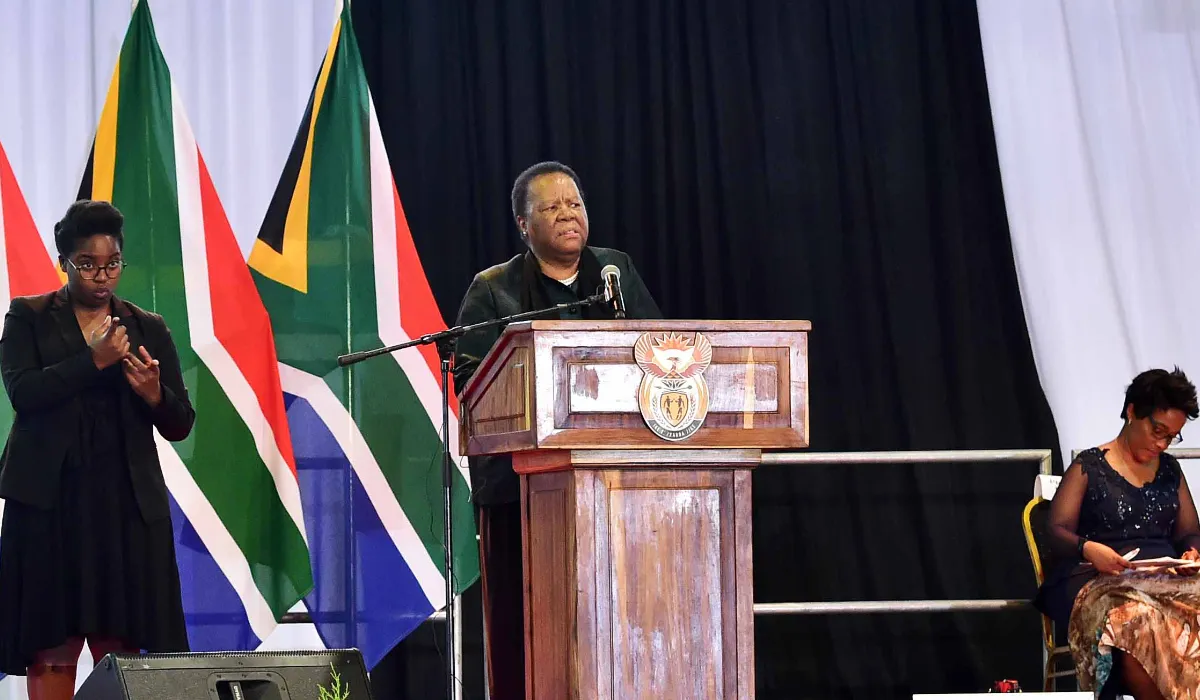South Africa’s Women, Peace and Security (WPS) Agenda finds expression in the country’s broader vision of “a better South Africa, a better Africa and a better World”. In fact, South Africa’s participation in all peace-making activities is underscored by the values enshrined in the country’s Constitution, foreign policy objectives of promoting the peaceful resolution of conflicts, the creation of an environment that is conducive for sustainable development and commitment to rules-based multilateralism in a world that is just and equitable.
South Africa remains committed to gender mainstreaming in all aspects of our socio-economic development. In peace operations it has been enhanced through the implementation of the United Nations Security Council Resolution 1325 (2000), the Beijing Declaration, South Africa’s National Action Plan on Women, Peace and Security – 2020 to 2025, South Africa’s Promotion of Equality and Prevention of Unfair Discrimination Act 4 of 2000 as well as the Commission for Gender Equality Act 39 of 1996. Gender mainstreaming in Peace Operations remains a vital commitment to the principle of equal rights, full and effective representation and participation of men and women in decision-making processes and programmes for conflict prevention, peace-making, peacekeeping, post-conflict reconstruction and development.
As part of advancing the WPS Agenda, the Minister of International Relations and Cooperation (DIRCO), Dr Naledi Pandor launched the Gertrude Shope Women’s Mediation Network (GSWMN) on 8 March 2024 on the occasion of the International Women’s Day celebrations.
Tweet
As part of advancing the WPS Agenda, the Minister of International Relations and Cooperation (DIRCO), Dr Naledi Pandor launched the Gertrude Shope Women’s Mediation Network (GSWMN) on 8 March 2024 on the occasion of the International Women’s Day celebrations. The Launch was lauded by the Ministers present, the Minister of Women, Youth and Persons with Disability, Dr Nkosazana Dlamini-Zuma and the Minister of Defence and Military Veterans, Ms Thandi Modise. Moreover, the occasion was also heralded by the diplomatic corps, members of civil society organisations (CSOs) and other interested individuals.
The GSWMN, finds its roots in the Gertrude Shope Annual Dialogue Forum (GSADF), an invaluable platform for women peacemakers and builders to gather and share their experiences, knowledge, and best practices. The Capacity Building Programmes on Conflict Resolution, Mediation and Negotiation presented by the DIRCO, provided valuable skills for current and future peace leaders. Through these groundbreaking initiatives, CSOs, community leaders, and the many local institutions in women’s development, peace-making and empowerment collectively worked with government to eventually build this unique Network.
Through the GSADF, a diverse society of women shared their experiences, best practices, and knowledge. The GSADF called on women to gather and start a network to remain in contact and to accumulate resources through their connection. Independently, women who had participated in the GSADF and graduated from the capacity building programmes mobilised and attended to situations where they could utilise their skills.
To bridge the gap created by the deliberate absence of women from peace-making and peace building policy discussions, South Africa began capacitating women and inspired many other networks.
Tweet
The GSWMN is thus the culmination of the work done by numerous CSOs, community leaders, government departments and the many local institutions in women’s development, peace-making and empowerment. To bridge the gap created by the deliberate absence of women from peace-making and peace building policy discussions, South Africa began capacitating women and inspired many other networks. These include the African Union’s FemWise Africa, Mediterranean Women’s Network, the Norwegian Women’s Mediation Network, and many others.
The Network commits to recognising the untapped potential, talent, and unique approach that women bring to the table and promotes gender equality and women empowerment as key agents of peace and stability.
The GSWMN is envisioned for women to reflect on their work, realise best practices and critique existing policies and procedures. It will further address challenges and make practical recommendations to national, regional, and international institutions of governance.
The Launch of the GSWMN promises to advance South Africa’s existing work within the WPS Agenda and cement women’s place in all peace-making activities. It is hoped that the GSWMN will address gender mainstreaming not only in peace making activities but also pave the way for further inclusion in all aspects of development.
Ambassador Maud Dlomo is the Deputy Director-General of the Department of International Relations and Cooperation (DIRCO) in South Africa.

